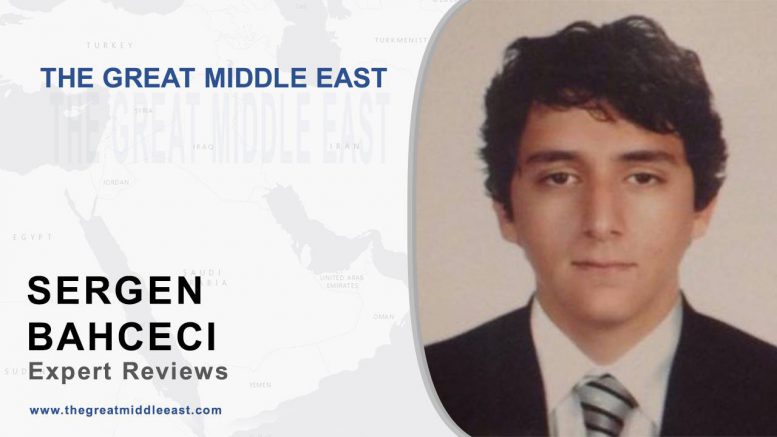After the murder of the Russian ambassador in Turkey, media and experts have put forward a huge number of versions of who was behind it, who could benefit from it and so on. We turned to Sergen Bahceci, freelance political consultant based in London (UK) with a request to share his views on the issue.
Whose interest do you think is served by this crime? Is someone else behind Mert Altıntaş? Or did he act on his own after all?
Conventional wisdom suggests that the instigator of an act can best be discovered by finding those who benefit from that act. In the case of Andrei Karlov’s assassination, this wisdom may not hold true for a number of reasons.
First of all, few interests are served by Karlov’s death. Many people, not all of whom are conspiracy theorists, rushed to blame Turkish secret services, or certain cliques within secret services, as likely culprits of the assassination. The fact that the assassin was a police officer did not help refute such claims. However, one only needs to ask, perhaps rhetorically, how Turkish state’s interests could be served by an ambassador’s killing? States are responsible for protecting the diplomatic staff residing in their capital; this is a well-established principle of international law and is practiced by even the most ‘irrational’ states. At a time when Turkey is trying to restore not only its strained bilateral ties with Russia, but also its tarnished international public image, no sane bureaucrat could even contemplate such an act. The assassination reduced Turkey to the status of a ‘banana republic’ that is incapable of providing safety even to the ambassadors in its capital city. Hence, I believe it is very unlikely that Mert Altıntaş was directed by anyone within the state apparatus. I doubt even potential Gulenist cliques within the state, which one wouldn’t expect to see there after the extensive purges that followed the failed coup attempt, would seek to do such a thing, as they would be the first ones to be blamed, as they already have, by the Justice and Development Party ministers. Moreover, Gulenists could never be sure that the assassination would harm Turkish-Russian relations. In fact, one would expect the exact opposite, namely a closer cooperation between Turkey and Russia, and that indeed seems to be the case.
Therefore, was Karlov’s assassination an inside job instigated by Russia? Again, I see this idea as very unrealistic for one very simple reason; Russia gained nothing from the death of Karlov. One line of argument goes that Putin had Karlov killed so as to give momentum to Turkey’s shift away from the West; Turkey would blame Gulen for the assassination and do all it could to reassure Russia, according to this argument. The problem with this explanation is that the murder of an ambassador on Turkish soil is hardly a celebratory cause for closer ties. Even after both Putin and Erdogan called the act a “provocation”, they couldn’t provide much of a substance to the act, and hence, the trilateral meeting on Syria went as planned, and ended on an inconclusive tone, as expected. One can argue that Russia in fact lost a great deal through this assassination. Putin’s personal machismo is widely perceived as a cornerstone of his foreign policy practice. Assassination of Karlov gave his enemies a rare cause of celebration, as celebratory gunfire was heard in the fields north of Aleppo, and Putin was forced to respond the only way that was left possible for him, as a detached diplomat dealing with a crisis situation. In responding to Karlov’s murder, Putin seemed naturally cornered. This act, even if it seemingly led to an initial Turkish shift towards Russia, was less than ideal for Putin, and indeed, as an otherwise skilled statesman, was an act he wouldn’t need if he sought to pull Turkey towards himself.
I believe the attack is all it seems. Even Fateh al-Sham, formerly known as Jabhat al-Nusra, denounced the earlier allegations that it masterminded the attack. Mert Altıntaş may well be a lone wolf who calculated his act to its minute details, and performed it with great precision with the help of his past training. The ideas he expressed immediately after shooting the ambassador are not uncommon in Turkey. They are definitely not uncommon among police officers, whose “espirit de corps” have carefully been injected with a good deal of Islamism in the past couple of years. A significant part of Erdogan’s supporters, especially those who see him as an “Islamist” than anything else, are disillusioned with his recent pragmatism towards Syria. When this disillusionment is taken into account and when placed within the wider global pattern of Islamist lone wolf attacks, Mert Altıntaş seems less like an anomaly. Desire for personal sacrifice, aloofness, and a belief that they are acting for a greater good, are features shared by radical Islamist militants everywhere. Altıntaş may well have obtained the information regarding Karlov’s whereabouts on 19 December on his own. He may well have entered the gallery by showing his police ID; nowadays being a policeman opens many doors in Turkey.
Thus, given the impossibility of knowing if anyone was behind Altıntaş, I would advise us all to look at what we are able to see, which all suggest that he was acting on his own, or at least not under the direction of some state power. An act of espionage as high stake as this is unlikely to occur in what some call our ‘post-fact’ era. No one could have foreseen the implications this act would have for international relations and thus no one could have risked instigating it, except for the radical Islamist who was acting with motivations other than state interests.



Be the first to comment at "Sergen Bahceci:Karlov’s assassin may well have been a lone wolf"